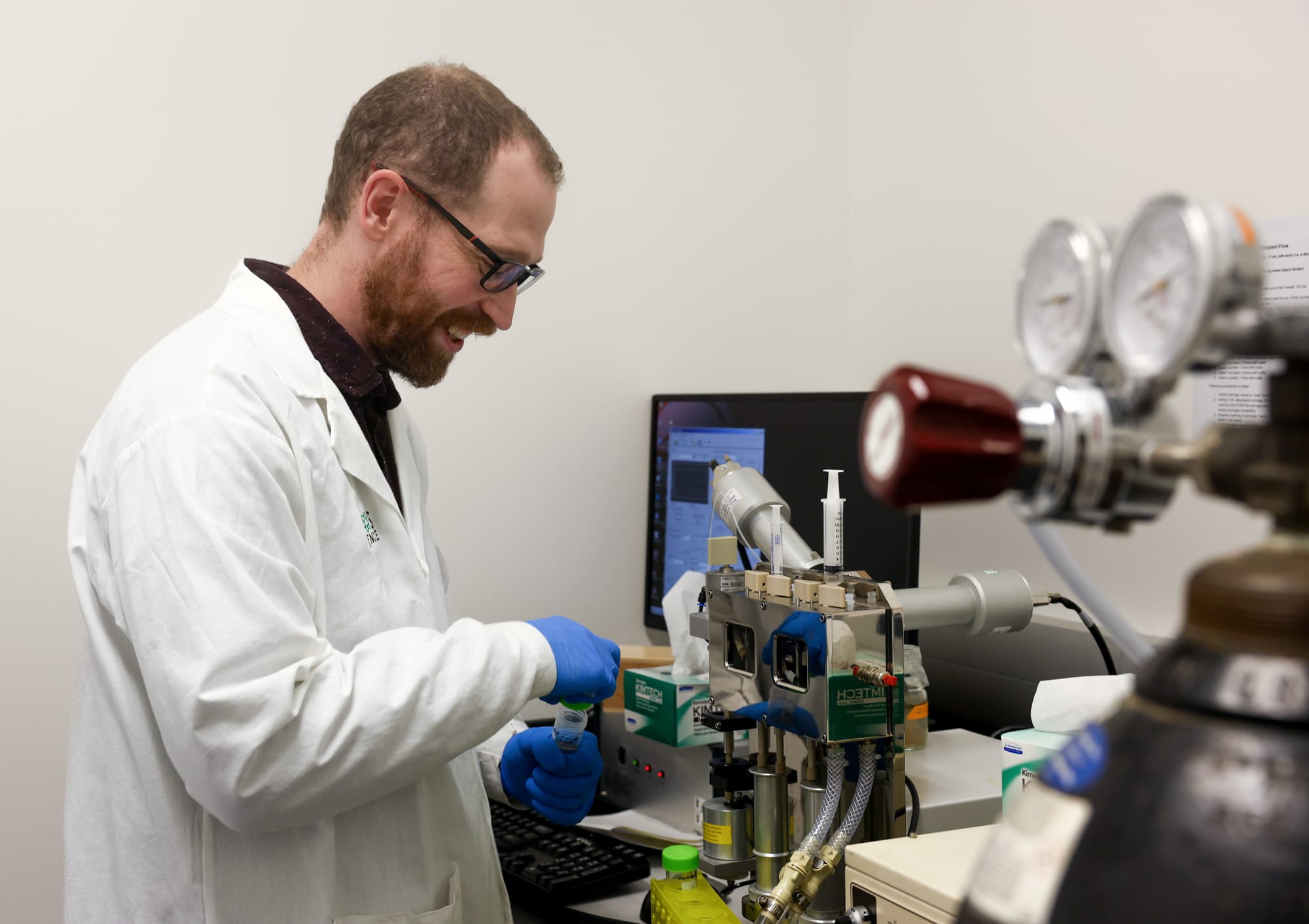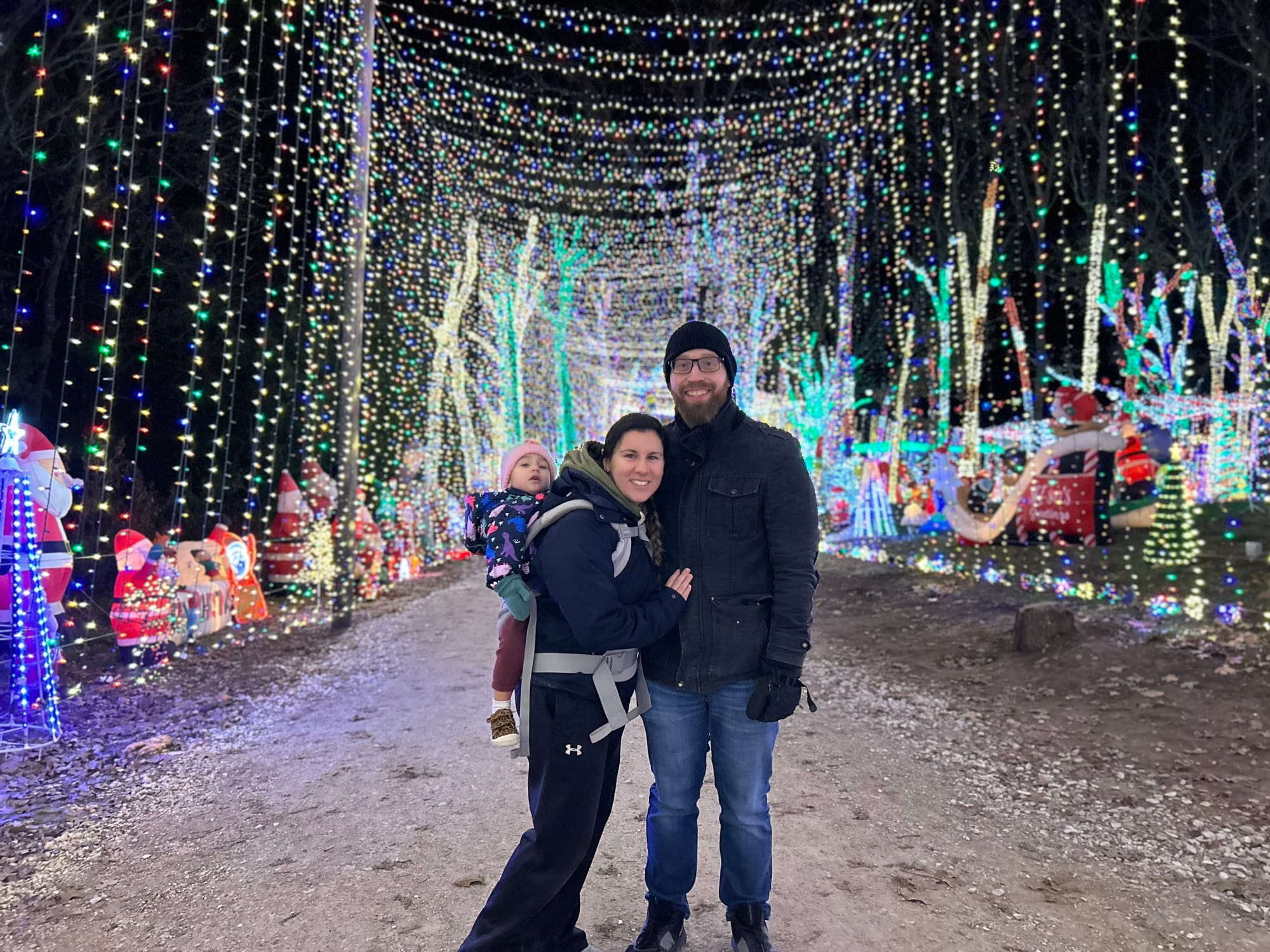Dr. Dylan Girodat (BSc '13, PhD '19), originally from Southern Alberta, has returned to his roots at the University of Lethbridge, where he’s eager to give back to the community that shaped his journey. After five years of research in the United States, he’s excited to teach and mentor undergraduate students in the Department of Chemistry and Biochemistry, sharing the opportunities that ignited his own passion for science.
With a focus on the intricate workings of RNA-protein complexes and their implications for cancer research, Girodat is dedicated to fostering an engaging and inclusive learning environment that empowers the next generation of researchers.
Can you tell us a bit about your background and what brought you to ULethbridge?
I am from Southern Alberta, so being able to teach and perform my research at the University of Lethbridge meant that I was able to give back to the community where I was raised.
I spent 5 years in the United States performing research and I am very excited for the opportunity to return to Canada. I also completed my undergraduate and graduate studies at ULethbridge, so I am familiar with the infrastructure available here, which is comparable to that of top-ranked universities.
What are you most excited about in your new role here?
I'm very excited to teach undergraduate students and provide them with the same opportunities that enabled my career in research and science. A significant contributor to this is the opportunity I have at ULethbridge to include undergraduate students in my research group.
As an undergraduate, it was the work inside a research lab that truly sparked my interest in science and set me on the path to becoming a researcher.
What are your research interests or areas of expertise, and why are they important to you?
I have two main areas of research. The first focuses on studying how complexes made of RNA and proteins function through complex rearrangements of their components.
I am particularly excited about this part of my research because understanding how biomolecules rearrange to facilitate specific functions inside a cell can enable their engineering to generate novel compounds or polymers.
Additionally, we can use insights from these rearrangements for drug development. The model system I am working with is called the ribosome, a massive RNA and protein complex that generates proteins in cells.

The second area of my research involves understanding how structural changes to ribosomes in human cells lead to cancer. Several studies have shown that mutations in ribosomes can increase the likelihood of cancer; however, the mechanisms behind this are poorly understood.
After a comparative analysis of where these mutations are located, it is clear that they cluster in core structural features of the ribosome, indicating that perturbation of these structures may be a key mechanism driving increased cancer progression.
My goal is to understand how these mutations alter ribosome structure to help diagnose or treat patients with mutated ribosomes.
How do you approach your teaching philosophy, and what methods do you use to engage students?
In my teaching, I aim to prioritize students' learning by finding a teaching style that works best for them. This involves offering various learning opportunities, including take-home assignments, one-on-one meetings, presentations, hands-on activities, and more. This diverse approach ensures that everyone has a chance to learn in the classroom.
I also strive to create a warm and welcoming classroom environment. To achieve this, I encourage open dialogues and take every opportunity for students to engage with the material and with each other. My goal is to foster an open, engaging, and challenging classroom environment.

What are some interesting facts or hobbies about yourself that you’d like to share?
These days I'm busy going camping, hiking, tobogganing, etc. with my family. However, in my free time, I really enjoy anything that keeps me active like football, rugby, and weightlifting. On top of that, I enjoy board games and Magic the Gathering.